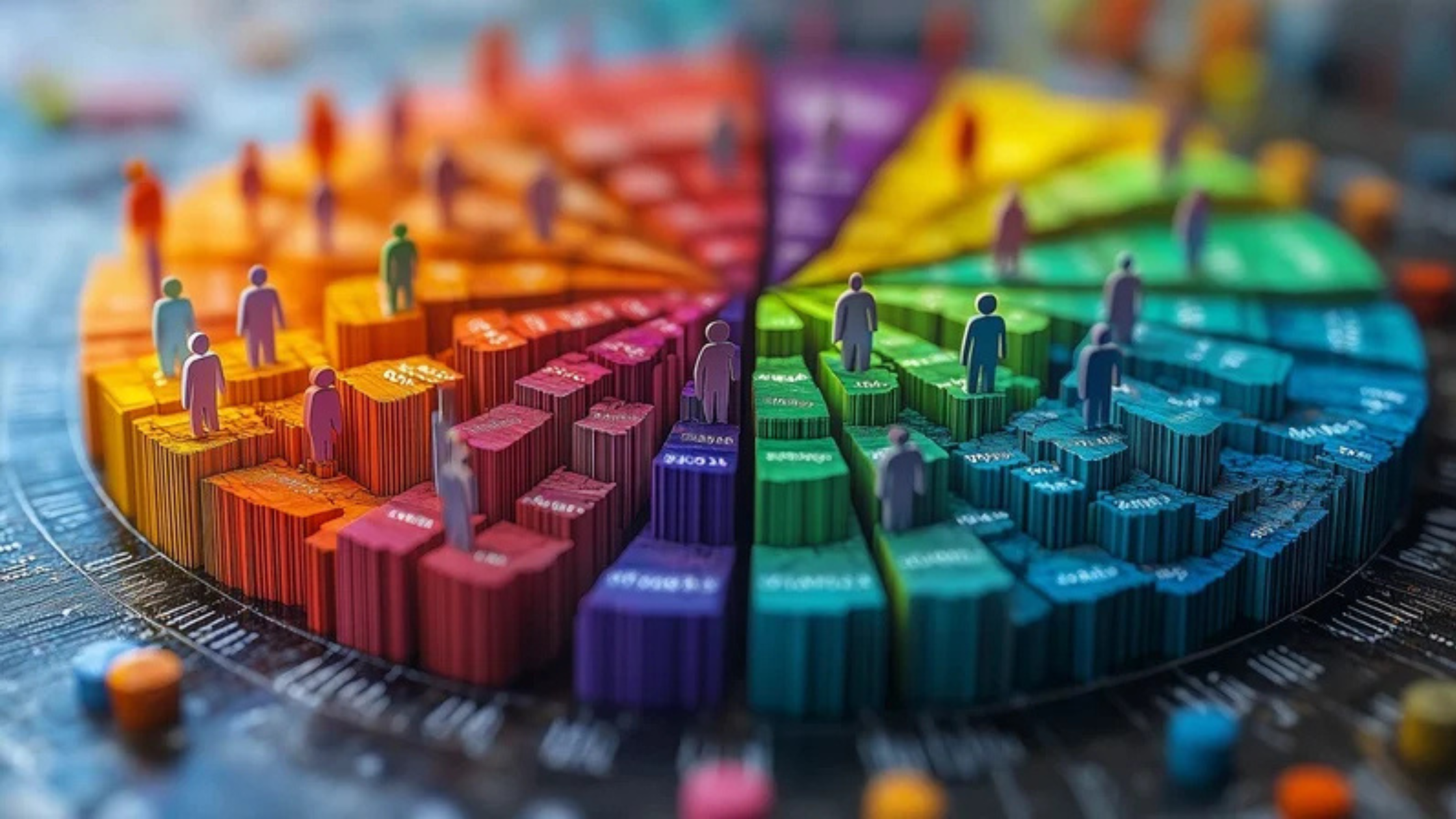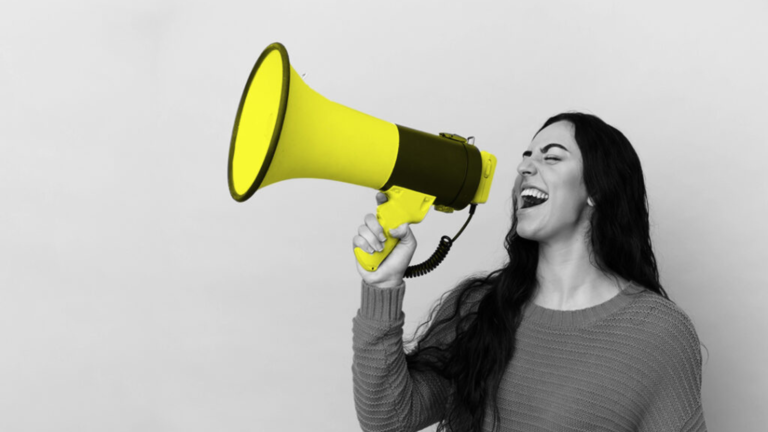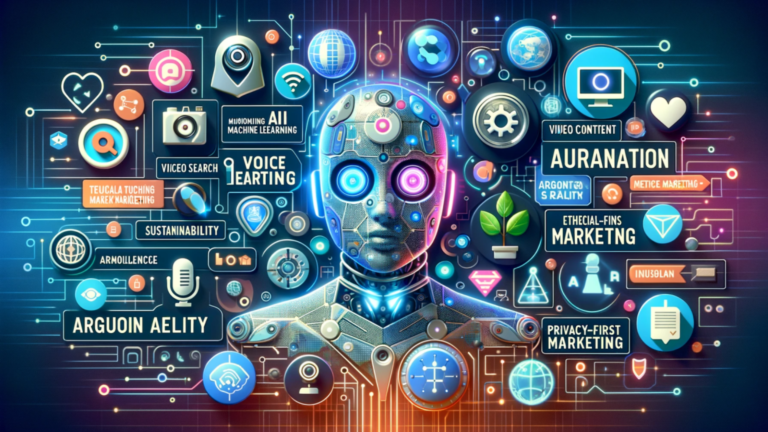In 2025, automation and artificial intelligence (AI) have the ability to completely transform
digital marketing in ways that were previously thought to be futuristic. In addition to altering
customer relationships, these technologies are also changing methods, resources, and
techniques utilized to create individualized, effective, and scalable marketing efforts.
2025: How AI & Automation Are Changing Digital Marketing Share on X
Here are some examples of how automation and artificial intelligence are changing digital
marketing in 2025:
1. Hyper-Personalized Customer Experiences:
- Predictive analytics: AI-driven technologies examine huge amounts of client
information to predict their requirements and preferences. This makes it possible for
marketers to present offers and content that are extremely relevant and targeted. - Dynamic Content: AI systems rapidly change product ideas, advertising messaging,
and website content according to the unique preferences and behavior of every
client.
2. Advanced Customer Segmentation
AI will enable digital marketers to segment their customers in ways that exceed standard
demographic or geographic criteria. Artificial intelligence (AI) will enable:
- Micro-Segmentation: AI will detect smaller, more complex audience segments based on their behavior, purchasing history, and interaction habits.
- Real-Time Adaptation: Automated technologies will dynamically modify marketing tactics and messaging in response to real-time customer data, resulting in a more agile campaign management.
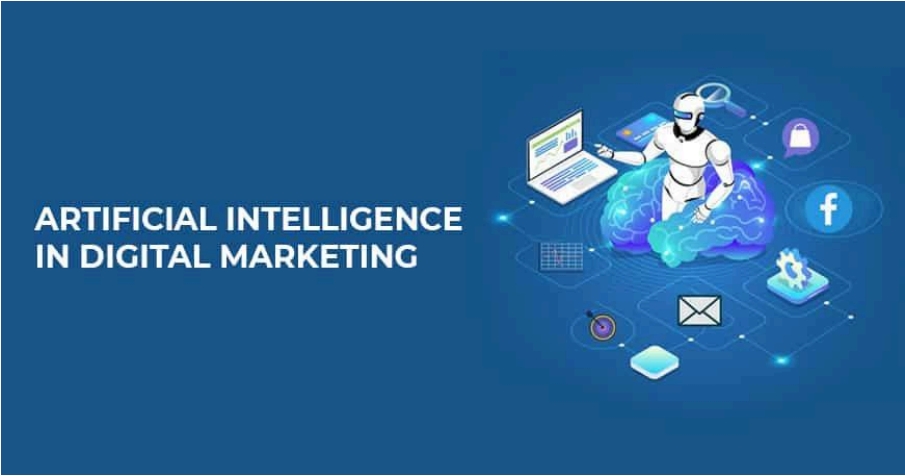
3. Advanced Chatbots and Customer Support:
● 24/7 Customer Support: AI-powered chatbots offer users 24/7 rapid help and
personalized assistance, increasing customer happiness and cutting response times.
● Natural Language Processing (NLP): Chatbots can understand and respond to
complicated client requests, resulting in more natural and efficient engagements.
4. Predictive Analytics and Smart Insights
Predictive analytics, powered by AI, will help marketers forecast trends, identify high-value
customers, and optimize their strategies for better outcomes. In 2025, AI will:
● Sales Forecasting: AI will analyze historical data to predict future sales trends,
allowing marketers to adjust their campaigns in real-time for maximum impact.
● Customer Lifetime Value Prediction: Marketers will be able to predict which
customers are likely to provide long-term value, helping prioritize leads and optimize
retention strategies.
● Automated Reporting: AI tools will automatically generate reports and insights,
saving marketers hours of manual analysis and allowing them to make data-driven
decisions more efficiently.
5. AI-Driven Ad Optimization
Paid advertising, especially in platforms like Google Ads and Facebook, will be heavily
influenced by AI. In 2025, AI will optimize ad campaigns with:
● Automated Bid Adjustments: AI will automatically adjust bids based on real-time
performance data, ensuring that every dollar spent on ads is driving the highest
possible ROI.
● Creative Optimization: AI will test and optimize different ad creatives (such as
images, headlines, and CTAs) to determine which combinations perform best for
specific audience segments.
● Cross-Platform Automation: Ads will seamlessly be managed across multiple
platforms, with AI determining where to allocate the budget based on which channels
are driving the most engagement and conversions.
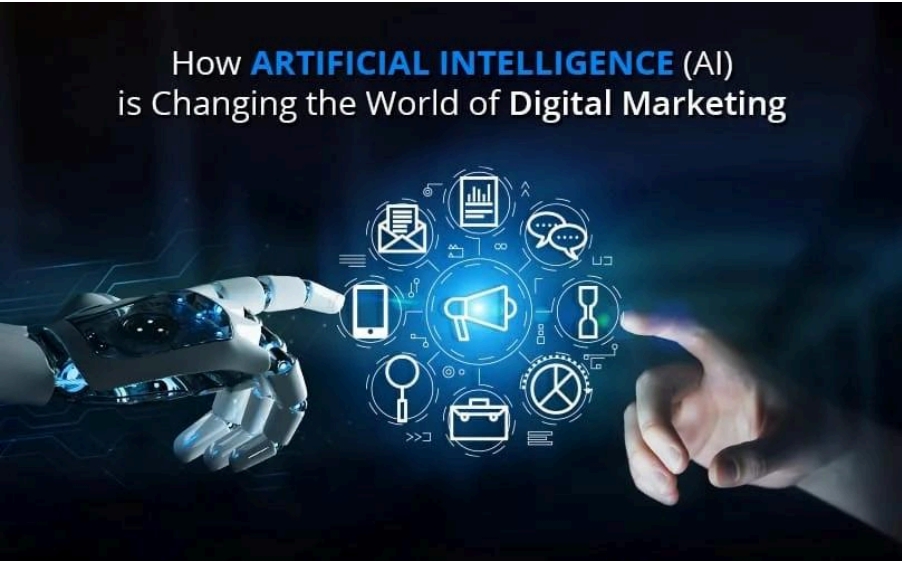
6. Voice Search and Conversational Marketing
Voice search is already on the rise, and by 2025, it will become an integral part of the digital
marketing landscape. AI and automation will enable:
● Voice-Activated Content Optimization: Marketers will optimize content for voice
search, focusing on natural language processing (NLP) to better match
conversational queries.
● Conversational Ads: AI will enable businesses to deliver conversational ads that
interact with users in real-time, answering questions, offering discounts, and driving
conversions via voice commands.
7. AI-Powered Content Creation
In 2025, AI tools will generate high-quality content more effectively than ever before.
Automated content generation platforms will use machine learning to craft articles, blogs,
product descriptions, and even video scripts that are SEO-optimized and aligned with
audience preferences.
● SEO-Optimized Content: AI tools will automatically create content that aligns with
search intent and is optimized for SEO, reducing the need for manual keyword
research.
● Video Content: AI-powered video creation tools will allow brands to generate
short-form video content automatically, integrating text, images, and voiceovers that
resonate with target audiences.
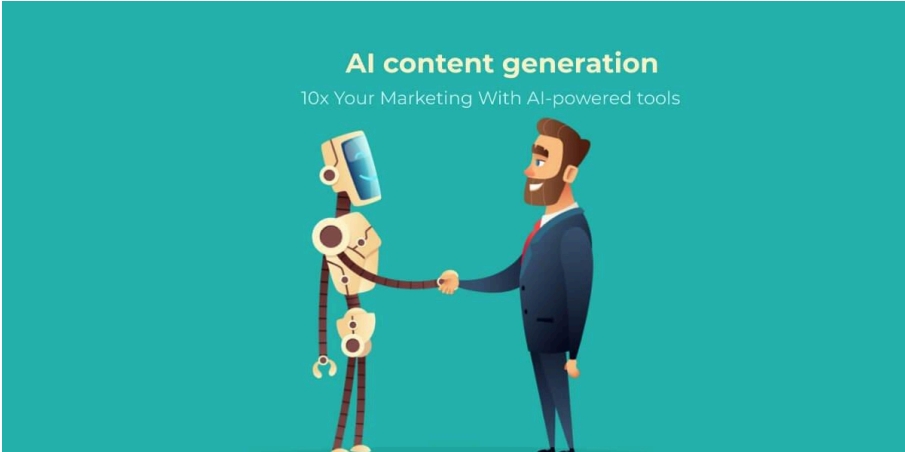
8. Automated Influencer Marketing
Influencer marketing will continue to be an essential part of digital strategies, but by 2025,
automation will play a larger role in this space:
● AI-Driven Influencer Discovery: AI will help brands identify the right influencers by
analyzing engagement metrics, audience demographics, and content quality,
ensuring more precise partnerships.
● Automated Campaign Management: AI will manage influencer campaigns from
start to finish, automatically tracking performance, optimizing content, and even
handling payments and contracts.
9. Ethical AI and Data Privacy
With increasing concerns about data privacy, AI in digital marketing will need to operate
within stricter ethical boundaries. By 2025, marketers will need to navigate:
● Transparent AI: AI tools will be designed to ensure transparency in how data is
collected and used, allowing customers to understand and control their data
preferences.
● Data Privacy Regulations: Automated systems will help marketers comply with
privacy regulations like GDPR by ensuring that customer data is handled responsibly
and in accordance with the law.
10. Automated Customer Journey Mapping
AI will enable brands to map out and automate complex customer journeys. By 2025:
● Journey Optimization: AI will track every touchpoint in a customer’s journey,
adjusting messaging and offers in real-time to ensure a seamless experience.
● Cross-Channel Integration: AI will ensure that marketing campaigns are consistent
across multiple touchpoints—whether it’s email, social media, or your
website—creating a unified experience for customers.
Conclusion
By 2025, automation and artificial intelligence (AI) will not only increase the success of digital
marketing but also provide up new possibilities for creative thinking and customization, and
prediction. Using these technologies can help marketers remain ahead of the competition,
improve conversions, and forge closer bonds with their target audience. AI and automation
will undoubtedly affect digital marketing in the future, and those that adapt to these
innovations will be at the edge.
Recommended Read:
Unlocking Hidden Insights: Using Data to Personalize the Customer Journey
GENERATIVE AI’S ROLE IN SEO AND CONTENT MARKETING
THE FUTURE OF DIGITAL MARKETING: AI-DRIVEN INNOVATIONS AND TRENDS

